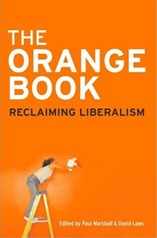It’s very popular these days to blame the “bankers” for the recession, and indeed “bash the bankers”. No doubt some of this enthusiasm is down to the fact that “bankers” sounds a bit like “wankers”, and many gain a simple pleasure from this recognition.
Finance (or banking) meant that I could afford to buy a house costing £50,000 with a salary of only £25,000 (this was some time ago!), and investment means that companies wishing to grow can do so without having to painstakingly build up cash reserves by trading. Dealing in these investments is what will help pay for my retirement through my pensions – this is true for both my Universities Superannuation Scheme and my company pension. Insurance helps us to cope with financial shocks we could not otherwise bear, the premiums for this insurance are often invested so reducing the amount of the premiums.
Banking is a mild confidence trick, it generates extra cash on the basis of anticipated future income. The crash happened because banks lent to people who, it turns out, couldn’t realistically be expected to provide that future income. On realising this the banks found they had promised the provision of rather more money than they had access to and flapped around trying to call that money in. More specifically, in the US, banks were giving mortgages to people who didn’t have jobs but who could “afford” a mortgage because “of course” the value of the properties was always going to increase and so the interest on the mortgage would be covered by the rising house value. This scheme worked because these dodgy mortgages were bundled up together and then traded. The bundling reduces the risk, as long as there is no systematic shock that effects all of the mortgages in the bundle.
The bank bailout was not a cash gift in the sense that you might give me £50 for my birthday, it was money to give the banks confidence to keep lending out money which many of us need to live in the manner to which we have become accustomed. In a way the current lending targets for banks are perverse: we’re in the position we are in now because the banks lent more generously than was wise – now we’re encouraging them to lend more than they would otherwise wish.
The bank hardest hit by the crash in the UK was Northern Rock, not a bank engaging in particularly aggressive or exotic trading, rather one that gave the opportunity of owning a house to rather more people than it was strictly wise to do so. In retrospect you could see the seeds of this over-lending 10 years ago, when I was offered a mortgage 4x joint salary, or when you saw all those programs featuring people in their twenties who had £20,000 and above on credit card bills built up on purchases they didn’t need and couldn’t afford.
This isn’t to say the financial sector is without faults: they have a habit of selling products to people who don’t need them (like that mortgage protection plan you sold me Cheltenham and Gloucester), they invent financial abstractions which no-one has a hope in hell of understanding and, because they preside over large money flows, they are able to pay themselves very nicely by extracting a small charge from those vast flows whilst many people are not doing so well.
For me this is personal: my brother has worked in the IT departments of several investment banks, currently the town where I live is facing the possibility of 3,500 job loses because the Bank of America may be closing its credit card handling centre. I don’t want the 3,500 or the one to lose their jobs.
It’s easy for politicians to piggy-back on this enthusiasm for banker bashing but we should be aware that many of the things we take for granted are built with the support of the financial industry.

